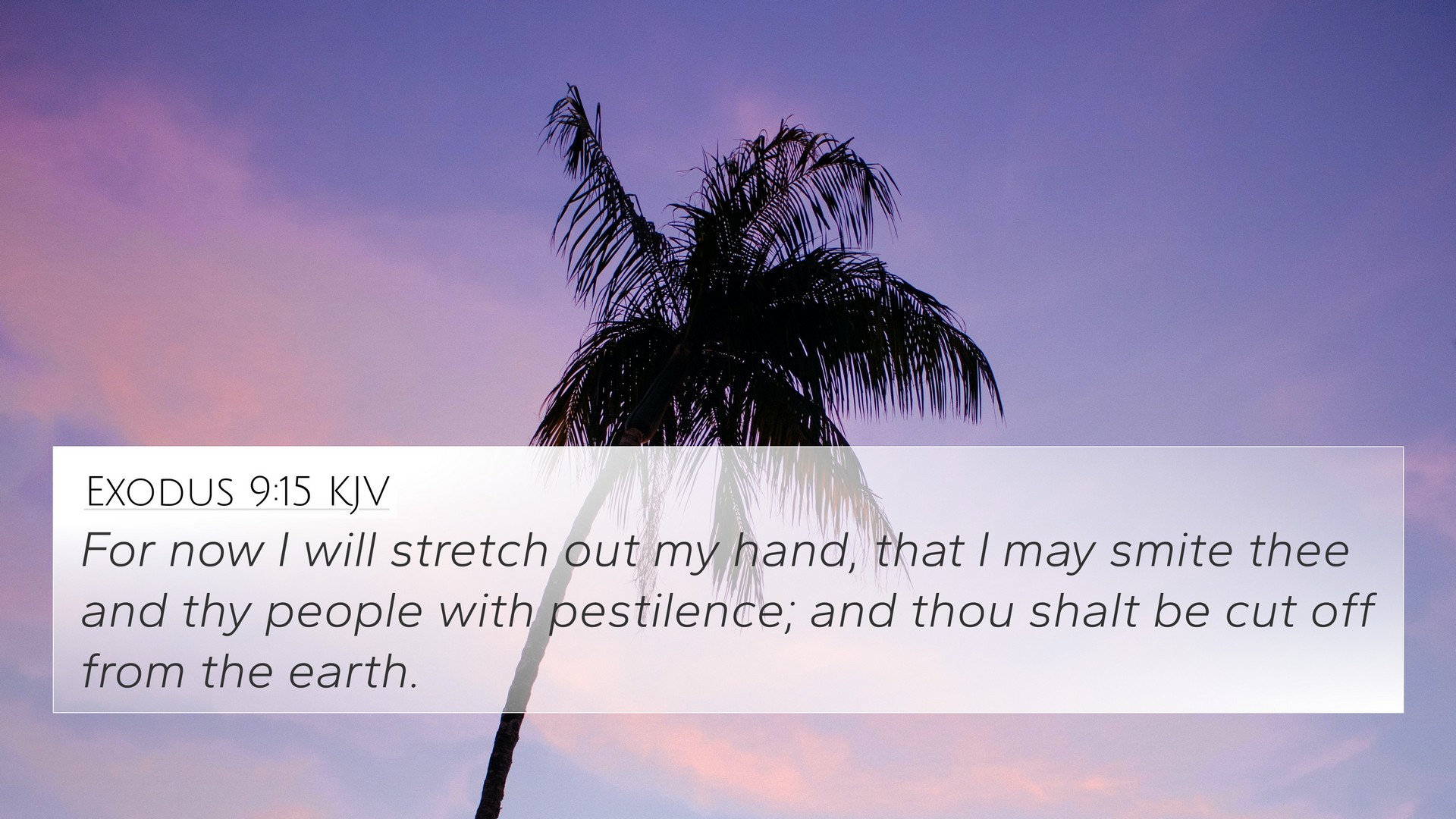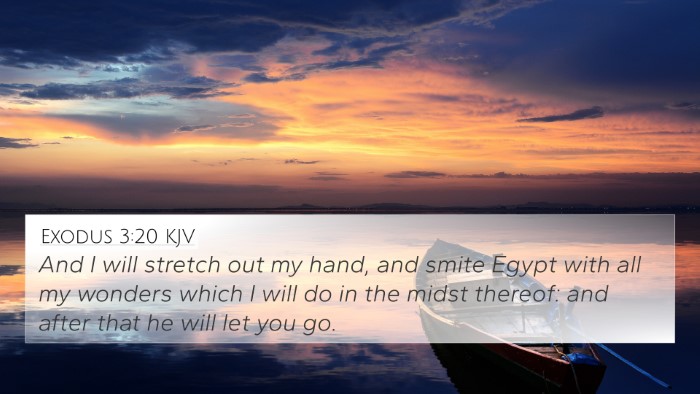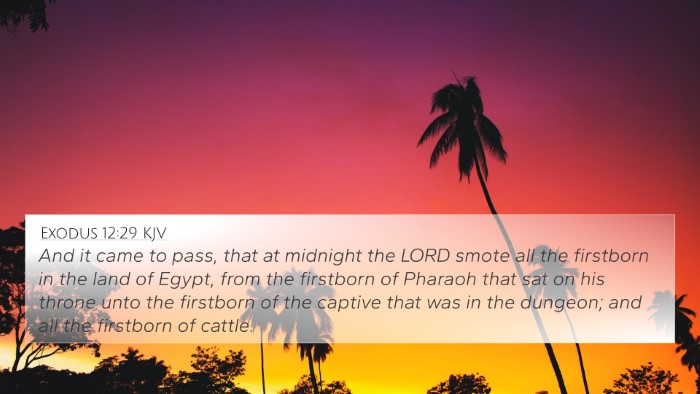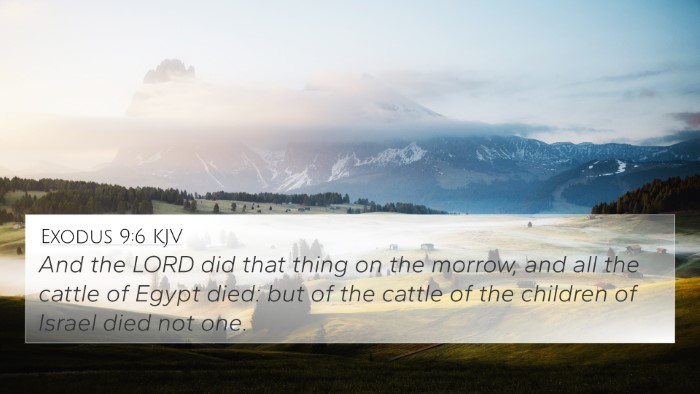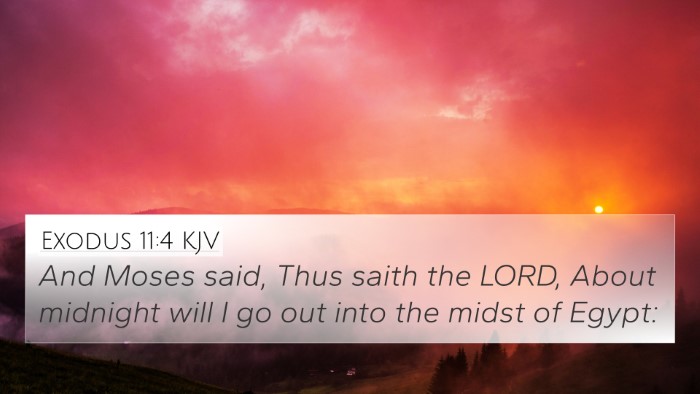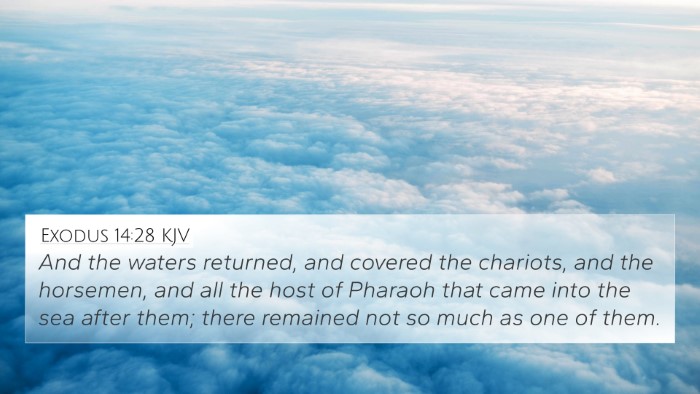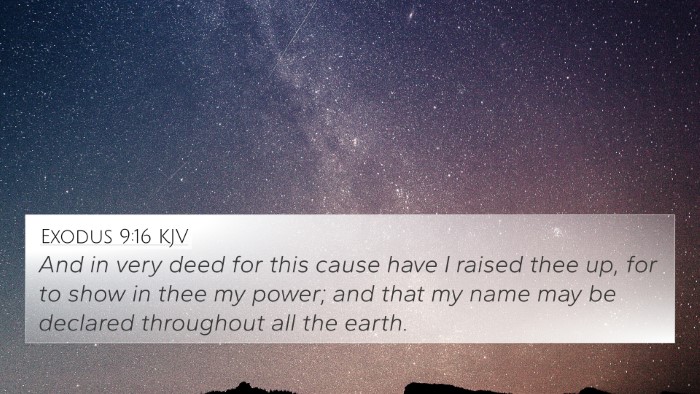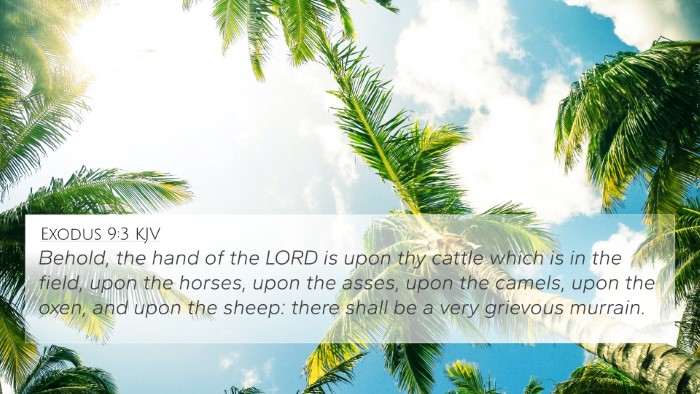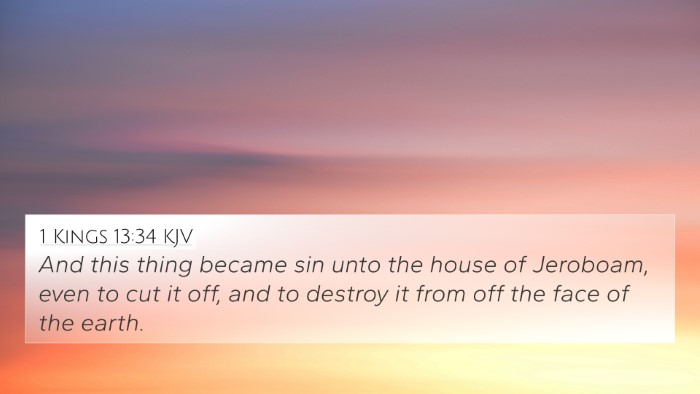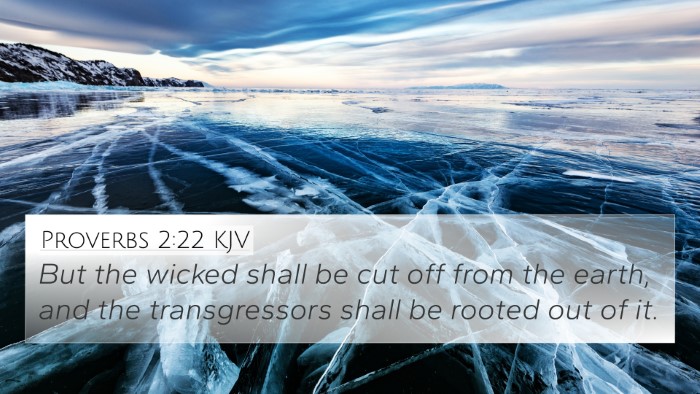Understanding Exodus 9:15
Exodus 9:15 states, "For now I could have stretched out My hand and struck you and your people with pestilence, and you would have been cut off from the earth." This verse marks a critical point in the narrative of the ten plagues that God inflicted upon Egypt as a part of His plan to liberate the Israelites from slavery. The verse reflects God's sovereignty, mercy, and justice.
Verse Meaning and Interpretations
This verse can be understood in layers:
- God's Authority: The phrase "I could have stretched out My hand" speaks to the immense power God possesses over creation. His ability to bring calamity at will illustrates His authority over life and death.
- Divine Mercy: The mention of pestilence indicates a punishment that could have been executed. However, God refrains from it, showcasing His mercy even to the obstinate Pharaoh and the Egyptians.
- Judgment and Accountability: By delivering this statement, God emphasizes that Pharaoh's resistance to His commands has consequences. It underscores the principle that defiance against divine instructions leads to judgment.
- Purpose of Deliverance: God's actions intend not just to punish, but ultimately to liberate His people from bondage, establishing a prelude to the eventual Exodus.
Insights from Commentaries
Matthew Henry's Commentary:
Henry elucidates that this passage serves as a warning to Pharaoh about the true intentions of God. The imagery of stretching out His hand indicates that even though God had not yet acted to the fullest extent, His mere intention demonstrates His capacity for immediate action. Henry holds that this declaration reinforces God's patience and desire for Pharaoh to relent and recognize His power.
Albert Barnes' Commentary:
Barnes reflects on the idea of God's long-suffering nature. He points out that the warning was not just an idle threat but rather an appeal for humility and repentance. Barnes stresses that God is allowing time for Pharaoh to reconsider his stance against the demands of the Almighty.
Adam Clarke's Commentary:
Clarke emphasizes the significance of God's choice to withhold judgment. He notes that while God could have used extreme measures, He instead chooses a gradual approach to reveal His power, allowing for the possibility of Pharaoh's change of heart. Clarke's insights highlight the tension between free will and divine sovereignty in the narrative.
Bible Cross-References
Exodus 9:15 connects with several other Bible verses that explore similar themes of God’s authority, mercy, and judgment:
- Romans 9:17: “For the Scripture says to Pharaoh, 'I raised you up for this very purpose, that I might display my power in you and that my name might be proclaimed in all the earth.'
- Psalm 81:12: “So I gave them over to their stubborn hearts to follow their own devices.”
- Exodus 10:1: “Then the LORD said to Moses, 'Go to Pharaoh, for I have hardened his heart and the heart of his officials so that I may perform these miraculous signs of mine among them.'”
- Isaiah 63:10: “Yet they rebelled and grieved his Holy Spirit. So he turned and became their enemy and he himself fought against them.”
- Hebrews 12:6: “For the Lord disciplines those he loves, and he punishes each one he accepts as his child.”
- Job 33:18: “He keeps back his soul from the pit, and his life from perishing by the sword.”
- 2 Peter 3:9: “The Lord is not slow in keeping his promise, as some understand slowness. Instead he is patient with you, not wanting anyone to perish, but everyone to come to repentance.”
Connections and Thematic Bible Verse Insights
Exploring the connections between Bible verses provides a more profound understanding of God’s character and actions:
- Thematic Connection: The theme of divine mercy and justice found in Exodus 9:15 resonates with the broader narrative of redemption throughout the Bible.
- Inter-Biblical Dialogue: The correlations between the Old Testament and New Testament doctrines of God’s nature as loving but just are pivotal for deeper theological study.
- Scriptural Cross-Referencing: Understanding how God's judgments in Exodus inform New Testament teachings about mercy and forgiveness enriches the study of biblical coherence.
Tools for Bible Cross-Referencing
For those seeking to explore the rich cross-references of the Bible:
- Bible Concordance: A helpful tool for locating where specific themes or words appear throughout the Scripture.
- Cross-Reference Bible Study: Engaging in a systematic study that identifies relational patterns between different verses enhances one's comprehension of the biblical narrative.
- Bible Cross-Reference Guide: Using guides can lead to a better understanding of how verses relate thematically and contextually.
- Bible Chain References: These tools allow for easy navigation between linked verses, providing a clear pathway for theological inquiry.
Conclusion
In summary, Exodus 9:15 serves as a powerful reminder of God's sovereignty and His mercy in calling sinners to repentance. The connections drawn with other scripture enrich our understanding of the text, and utilizing various cross-referencing tools can lead to profound insights in Bible studies. Reflecting on the comprehensive messages within the Bible strengthens faith and illuminates God's overarching plan for humanity.
